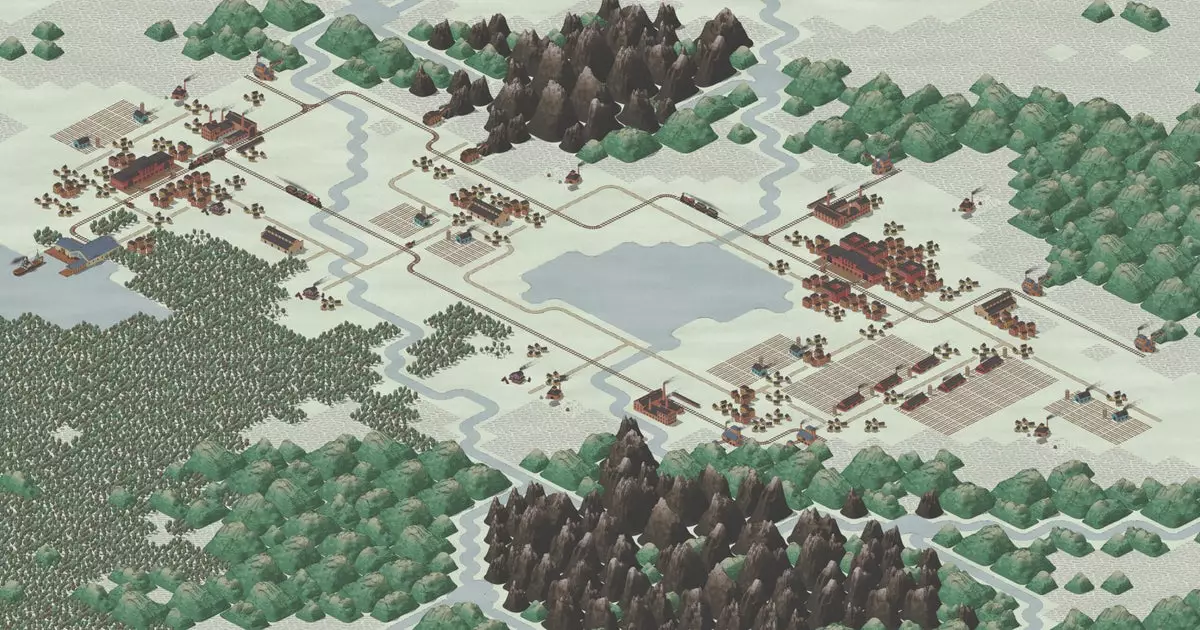In the realm of strategy gaming, certain titles linger long in the memory, often tied to personal anecdotes or pivotal moments in one’s journey as a player or writer. “Times Of Progress” is one such title—an invitation into a world that mirrors the intricacies of the Industrial Revolution, and it all began with a conversation with Sin Vega, a prominent figure in the strategy gaming community. The edition of a news article about a new city-building game was likened to performing intricate martial arts in front of an esteemed master. It is a daunting prospect; writing about the complexities of city planning and management while trying to capture the essence of history feels akin to allocating resources on behalf of an emperor. There’s the fear of inadequacy, the dread of saying the wrong thing, yet a desire to share the excitement eventually prevails.
From the moment players step into “Times Of Progress,” the aesthetics stand out dramatically. The game presents a beautifully crafted, procedurally generated isometric landscape, where diamond-shaped town layouts harmonize with winding roads and railways. The color palettes—earthy tones paired with vibrant bricks and lush greens—create a pleasing, immersive atmosphere. The animated elements, such as swirling smoke from chimneys and the gradual transformation of simple homes into multifaceted structures, breathe life into the otherwise minimalist design. While some might label it as “minimalist,” calling it redundant would be a disservice. The design, while streamlined, enhances the focus on gameplay mechanics and strategic decision-making that reflects the era’s unique challenges.
What truly elevates “Times Of Progress” is its commitment to historical authenticity. Rather than the typical player-driven research narrative, the game unfolds based on a structured timeline reflecting revolutionary advancements. Players do not directly assign researchers; instead, new technologies—be it typewriters, textile machinery, or electrolysis—emerge as society progresses through the Industrial Revolution. Acquiring these advancements hinges on meeting specific objectives that yield points, thereby integrating players into a broader context of development alongside AI-managed communities scattered around the game map.
Trade emerges as a fundamental aspect of gameplay, as military components are conspicuously absent. Instead, players engage in a mercantile dance, forging economic ties with neighboring cities. It’s a refreshing twist on city-building games, stressing cooperation and commerce over conquest. This system imbues the game with a sense of realism that reflects the economic interdependence of the era.
No historical simulation would be complete without addressing the period’s labor relations, and “Times Of Progress” does not shy away from this aspect. Strikes among workers can emerge if employees do not receive payment punctually, reflecting social tensions that characterized the industrial age. Players bear the weight of decision-making—choosing whether to appease the striking workers or quell dissent through strict enforcement of order.
Moreover, the possibility for unionization introduces another layer of strategy, requiring players to navigate the intricacies of labor laws while maintaining productivity. The delicate balance between efficiency and worker rights not only enriches gameplay but also invites reflections on modern-day labor issues.
“Times Of Progress” stands as a testament to the vision and capabilities of independent game development. Created by a solo developer based in Berlin using Rust and the Bevy Engine, the game’s name is an endearing nod to the traditional practice of wishing for good fortune. As players engage with its engaging mechanics and beautifully cultivated environment, they embark on a journey not just through the development of a city but through the very fabric of a pivotal era.
In a gaming landscape often dominated by larger studios with extensive resources, “Times Of Progress” reminds us of the unique narratives and innovative gameplay that independent developers can offer. As we wait for deeper insights from community figures like Sin Vega, my early observations encourage curiosity and open-mindedness towards the possibilities this game unfolds. The narrative it weaves isn’t merely about building a city—it’s about how we construct our understanding of history and community through strategic thinking.

